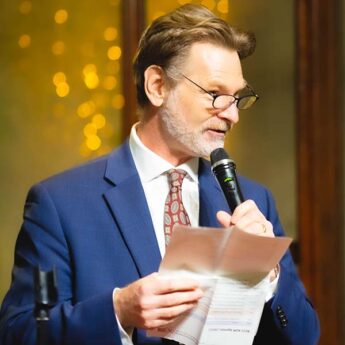The British Chamber of Commerce in Japan (BCCJ) hosted a panel discussion on sports sponsorship last July in association with the Australian and New Zealand Chamber of Commerce in Japan. Held immediately before the second rugby test match between the British & Irish Lions and the New Zealand All Blacks, the panel featured representatives from affiliates of key team sponsors: Standard Life Investments Japan (now Aberdeen Standard Investments (Japan) Limited), adidas Japan K.K. and AIG Japan Holdings K.K.
Since then, I have been intrigued by what makes businesses align with particular teams, competitors and disciplines. How do firms and sports teams pick their partner organisations? And why do some alliances last for years, while others evaporate after just one season?
Aberdeen Standard Investments Japan Chief Executive Officer Neil Slater provided an insight into the foundation for successful collaboration between sport and business. He believes it is about the alignment of values—a sentiment echoed by all panellists that day.
High performance
In search of more detail, the Paralympics has provided me with a dramatic example—top of mind with Pyeongchang soon to host the 2018 Paralympic Winter Games in March. BCCJ member firm Hogan Lovells Japan is among the supporters of the British Paralympic Association (BPA), and I for one applaud their commitment. Supporting an organisation such as the BPA certainly feels like the right thing to do, and I was fortunate last month to hear personal thoughts from members of a BPA delegation on why business should be partnering with elite disabled sport.
Caz Walton OBE, who first competed at the 1964 Summer Paralympics in Tokyo and went on to win 17 medals over a long and distinguished Paralympics career, immediately drew my attention to the success of British Paralympians. They are part of a high-performing team that recorded its best-ever results in a Winter Paralympics four years ago in Sochi.
BPA Head of Performance, Nik Diaper, was even more persuasive. Matter-of-factly, he explained how visually impaired British alpine skiers, such as Millie Knight and Menna Fitzpatrick, launch themselves downhill in pursuit of their (sighted) guides at speeds approaching 100kmph. Although both these athletes are already seasoned world champions, Knight and Fitzpatrick are not yet out of their teens—they are 18 and 19 years old, respectively.
My suspicion that their extraordinary success might have something to do with the fearlessness of youth was quickly dispelled. Diaper clinically explained the remarkable empathy they have with the guides they race with, shadowing them through the twists and turns downhill.
It’s not quite telepathy (as they are in audio contact during the race via a helmet intercom), but close. It is, Diaper told me, simply and fundamentally about “courage and communication”.
Right values
Success, courage and communication—these are values that participants in many high-performing sporting and business teams share, and aspire to perfect.
My conclusion then about business collaboration with Paralympic and grass-roots disabled sport? Look to the values—it’s not just the right thing to do, it’s a smart thing to do. Especially if you are in business to excel.

